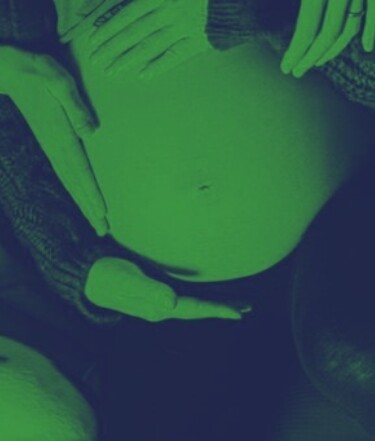
Equal-Pay-Lawsuit: Equal pay for equal work
An award-winning female ZDF reporter is paid less than her male colleagues. We fought with her for equal pay and set legal milestones.
Women have the right to be paid the same as their male colleagues for the same job. This is a fundamental and human right that is not only comprehensively enshrined in international and European law (especially in Article 157 of the Treaty on the Functioning of the European Union, TFEU), but is also derived from Article 3 (2) and (3) of the Basic Law and guaranteed by the General Equal Treatment Act (AGG). With a remuneration practice that discriminates against women, ZDF, as an institution under public law, violates the prohibition of pay discrimination.
Nevertheless, the complaint was rejected by the Berlin Labour Court at the first instance in December 2016. The Berlin-Brandenburg Regional Labour Court dismissed the plaintiff's appeal and did not allow an appeal on the core issues. After an unsuccessful appeal against non-admission, the plaintiff filed a constitutional complaint against this. With these decisions, the courts disregarded mandatory European law requirements.
However, the plaintiff has already achieved a huge success. Her appeal before the Federal Labour Court against the exclusion of quasi-employees from the right to information under the Remuneration Transparency Act was successful. In its decision of 25 June 2020, the Federal Labour Court clarified that editors with no fixed employment contracts are also entitled to information under the Remuneration Transparency Act. The term "employee" is to be interpreted broadly in accordance with EU law. It only depends on the fact that "a person performs services for another person during a certain period of time according to the latter's instructions, for which he or she receives remuneration in return". The legal relationship was "of no significance" (BAG, Judgment of 25 June 2020, 8 AZR 145/19, para. 72).
On July 19, 2022, the Federal Constitutional Court finally also announced its verdict: The constitutional complaint filed by the ZDF editor in 2019 on the grounds of pay discrimination was not accepted for decision for formal reasons. Thus, a substantive decision on whether the plaintiff Birte Meier was paid less because of her gender was unfortunately not issued. At the same time, however, the Federal Constitutional Court sent a strong signal by emphasizing in its ruling that a renewed action for payment based on the information on male comparative salaries that she had obtained in the meantime at the Federal Labor Court could be successful. The renewed action at the Berlin Labor Court ended in 2023 with a settlement between journalist Birte Meier and her former employer ZDF.
Systematic discrimination of women
The ZDF journalist´s case is not an isolated incident. According to the German Federal Statistical Office, women earn on average 7% less than their male colleagues for the same job, with the same scope and qualifications. These findings already exclude factors such as part-time work, the over-representation of women in lower-paid sectors and similar factors. Overall, women in Germany earn on average 18% less than men.
Most women don’t complain about discriminatory wages, either because they do not know their male colleagues’ salaries or because they fear repression from their employer or colleagues. This was also experienced by the plaintiff Birte Meier.
The plaintiff was transferred from the Berlin editorial department of Frontal21 to a Mainz department on 1 July 2020 at the request of ZDF after 13 years. Her position at Frontal21 was filled by a male editor. Birte Meier then started working as chief investigative reporter at RTL News in September 2022.
Already after filing the complaint, she was put under pressure from various ZDF departments. For example, ZDF pointed out to her that long-standing labor law disputes can often lead to mutual burdens on the employment relationship. Shortly afterwards, the Frontal21 editor-in-chief spoke of “war” in the editorial office if the legal documents comparing the employees’ work were to become public. In the first hearing in 2016, the ZDF lawyer advised the plaintiff to terminate the employment relationship. German law prohibits such adverse action against a plaintiff.
Courts ignore reversal of the burden of proof
The lawsuit has two legal objectives: First, the plaintiff wants to receive information about the remuneration of her male colleagues, secondly, she demands the compensation she is entitled to for the past on the basis of these figures (so-called action in stages).
The claim was initially dismissed at first instance. In doing so, the Berlin Labor Court largely misjudged or disregarded the actual facts of the case. The Berlin-Brandenburg Regional Labor Court dismissed the action in its judgment of February 5, 2019. The Regional Labor Court assumed in the plaintiff’s favor that her male colleagues performed the same or comparable work. However, the court held that the plaintiff should also have demonstrated that the differences in pay were based on her gender. In doing so, the court ignores CJEU case law. CJEU regularly reverses the burden of proof if at least one man earns more for comparable work. Then, it is up to the employer to exonerate himself from the suspicion of discrimination. With this burden of proof reversal the CJEU takes into account that it will hardly ever be possible for the female employee concerned to prove that she is being paid less due to gender.
ZDF repeatedly presented new and in part contradictory explanations for the plaintiff's lower pay before the courts: At times, professional experience, seniority or a degree in journalism were supposed to justify men's higher remuneration, then wages were said to have been negotiable to a large extent. These varying explanations indicate that ZDF is unsure about its own renumeration criteria, thus creating a gateway for discrimination.
Above all, however, the court misread the case law of the European Court of Justice (ECJ) on equal pay. According to the case law, the burden of proof is already reversed if at least one man earns more for a comparable job - it is then up to the employer to exonerate himself from the suspicion of discrimination. The ECJ hence takes into account the fact that it will hardly ever be possible for the employee concerned to prove to her employer that the wage difference is due to gender. This argument of the plaintiff has meanwhile also been confirmed by the Federal Labour Court in a similar case.
Fundamental ruling on pay transparency
In addition, the plaintiff before the LAG Berlin-Brandenburg court had also demanded information from ZDF about the median salaries of comparable colleagues. This claim for information under the Remuneration Transparency Act could be asserted for the first time in 2018. However, the ZDF and the LAG Berlin-Brandenburg refused to provide her with this information, as she was not covered by the Remuneration Transparency Act as a permanent employee. The plaintiff appealed against this decision.
In June 2020, the Federal Labour Court clarified in a landmark ruling that employees similar to employees can also demand information about male comparative salaries under the Remuneration Transparency Act. Moreover, the Federal Labour Court criticised the Federal Government's years-long failure to implement the European requirements on equal pay.
The ZDF then finally confirmed the plaintiff's research: Her salary in 2017 was actually more than 800 euros below the median of her colleagues who did the same job as her.
Strategic litigation against discrimination
The GFF defends constitutional and human rights. One focus is on the protection against discrimination. Wage justice is an important field in which equality is still not sufficiently implemented. To ensure that the right to equal pay is not just written on paper, GFF supports this case as well as Susanne Dumas' lawsuit.
Background information
- The file numbers of the proceedings before the Federal Labor Court are 8 AZR 145/19 (revision according to the Pay Transparency Act) and 9 AZN 504/19 (non-admission complaint).
- The file number of the complaint before the Federal Constitutional Court is AR 5979/19.



